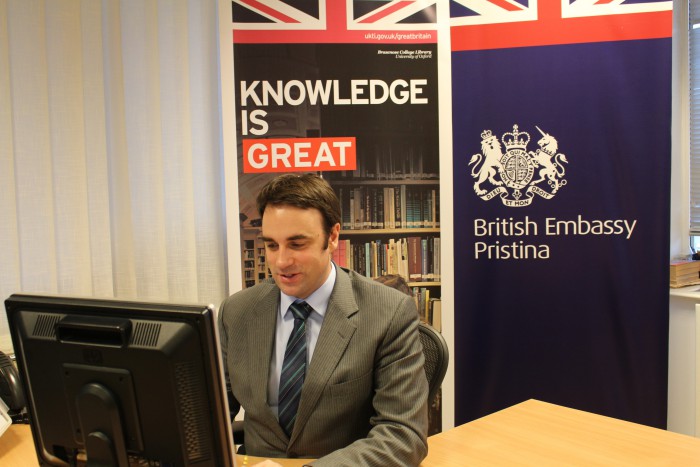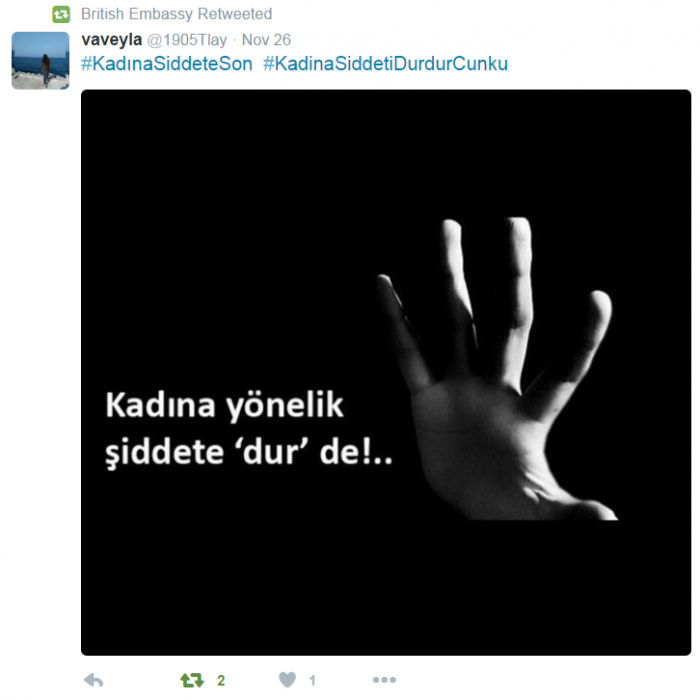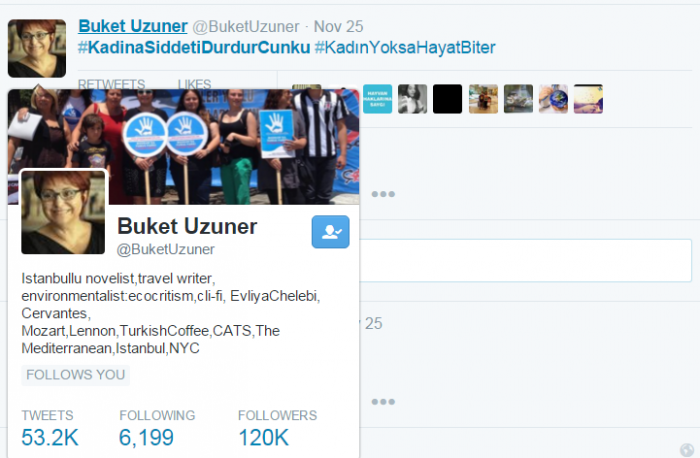21st January 2016 London, UK
Building (digital) platforms for discussion – something we should do more of in 2016

Digital and diplomacy: it hasn’t always been easy to put the two together. Over time our use of digital has matured, become more sophisticated and, we hope, more effective. Seeing the online activity from around the network, one thing has stood out above all else – the ability to engage, and, through that, the opportunity to provide platforms for open, democratic and transparent discussion, sometimes in places where few exist.
We have two reports that demonstrate great engagement with our online audience and show what happens when you build that platform: one when you ask a question, the other when you’re ready to give answers.
Kosovo: “An Ambassador who responds to public questions. Great!”
Tear gas in parliament, protests around the country, political stalemate. The situation in Kosovo is tense but as one daily newspaper (Koha Ditore) reporting on our recent Ambassador Facebook Q&A session, put it: “Dialogue is the way forward.”
Just because there isn’t much public debate on transparency and accountability in Kosovo, the response to the BE Pristina initiative proves that there’s very much the appetite. Albanian, Serbian, English, online, offline, it doesn’t seem to matter which, just that it takes place and we got a very warm public reaction to a recent Facebook Q&A session we ran, with our Ambassador responding directly to questions in local languages.

We received over 100 questions on all sorts of issues from project work to visas and lifestyle but the majority of questions were predominantly focused on the current political stalemate and the rule of law in Kosovo. The chat was picked up by traditional media, even before the session ended.
“The British Ambassador, Ruairí O’Connell, proves once again to be a foreign diplomat with the greatest popularity in the country. O’Connell seems to be easy accessible to the residents of Kosovo. He has just started a forum with the people of Kosovo in his Facebook profile discussing various issues”
We made the TV news, with a report by the public broadcaster RTK and Kosovo’s top chat show (think Jonathan Ross with 5% Andrew Marr) on KTV, reaching a wide swathe of our target audience with important messages on corruption and transparency. Public reaction online was overwhelmingly positive, asking when the next session would take place. One contributor wrote:
“(The) Ambassador’s live communication with the people is to be highly valued. This increases the trust and co-operation between citizens and international institutions, especially at this difficult time. We hope that other ambassadors and international institutions will follow the same practice.”
We even had a comment from a Kosovan MP:
“An Ambassador who responds to public questions. Great! We have ministers who do not respond even to us – the MPs”.
The Ambassador is planning to hold live Q&A sessions on a monthly basis, perhaps focusing each month on specific topics but open to all questions. Hopefully this will be a first step in increasing the level of expectation that Kosovars have of those in positions of responsibility and increase the pressure on politicians and party leaders to be more accessible and accountable to the people of Kosovo.
Turkey: Simplicity is the ultimate sophistication!
This principle, attributed to everybody from Steve Jobs to Leonardo da Vinci, embodies the idea that if the preparation is sophisticated and diverse enough, then you are more likely to achieve a simple and successful outcome.
At the British Embassy Ankara we marked International Day for the Elimination of Violence Against Women on 25 November by running a local-scaled campaign to support the wider, international campaigns which were conducted by the UN, FCO and other actors. It has been our most successful twitter outreach in Turkey to date.

We gave our audience the opportunity to speak up on Twitter and make their voices heard by using the hashtag “#KadinaSiddetiDurdurCunku” (Stop Violence Against Women because…). The campaign lasted for 7 days (24-30 November 2015) and we were really impressed with the answers we got back.

Turkish social media influencers such as writers and journalists were among the contributors and we felt this was our biggest success; engaging an influential audience through the strength of the campaign itself.

It didn’t take much to organise and now we have identified an activist and interested audience we can work with in the future as we take our campaign to prevent violence against women and girls forward.
With thanks to Merita Salihu-Munipi (Press & Public Information Officer, British Embassy Pristina) and Aycan Alp Erozalp (Digital Communications, Press & Public Affairs Officer, British Embassy Ankara).